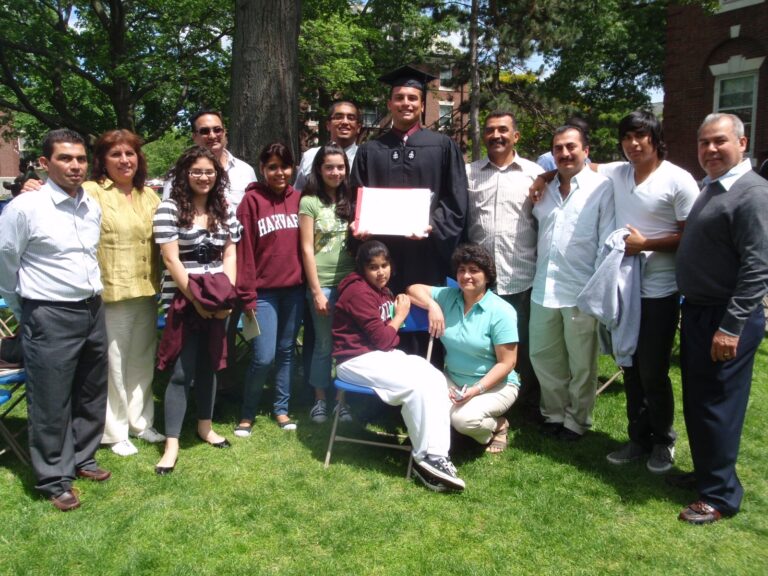“My name is Oscar Romano. I was born and raised in Cliffside Park, NJ. I was Valedictorian. I graduated from Harvard University.”
Can I count that as a personal story? Can I rally my staff around that?
Probably not.
The truth is that it’s not much of a story. It could serve as part of my bio on a webpage. But it won’t help as a personal story I can share to help others get to know me.
Your Story Can’t Be Solely Biographical
So what’s the problem with that version of my personal story?
It’s biographical data, easily forgotten and open to interpretation. More than anything, I may lose control over the meaning people might take from it. My audience might hear “Harvard” and assume I’m a genius or that my parents are wealthy.
My audience would miss out on so much of who I am because I failed to tell my story correctly.
- I learned determination through my parents and their persistence through frequent 7-day workweeks.
- Any intelligence I have is due to hard work more than innate ability.
I am doing myself a disservice if I am not purposeful when sharing a personal story.
Be Purposeful With Your Personal Story
As a leader, you need to be ready to share a personal story at a moment’s notice. You can use stories to rally people around a cause or connect with a staff member, among other examples. If you work at a school, you’ll need stories for introductions to new staff, families, and students. If you work at a nonprofit, you’ll also need to share stories to help donors feel connected to you.
If you’re not purposeful about the story you’re telling, you risk losing control. People will create their own meaning from your stories, whether you meant it or not. Your authentic voice has so much power, so don’t let it go to waste.
My Personal Story with My Voice
“My name is Oscar Romano, and I value hard work. My parents were immigrants from El Salvador, and I grew up speaking Spanish as my first language. I entered ESL programs when I started Pre-K and had to work hard to keep up with my classmates. I never stopped working hard and thought it would all pay off when I applied for college.
Unfortunately, I was the first in my family to apply for college, so I didn’t have much guidance around me. I didn’t have a lot of resources available in my high school either. In the end, it was a childhood friend who saved me. We had similar backgrounds, but he attended a private high school on scholarship. When I didn’t know what to do, he offered to guide me through the college application process. I wouldn’t have gotten into Harvard University if it weren’t for him.
I soon realized that the challenges weren’t over, as I struggled during my first two college years. It hit me that I wasn’t as prepared as many of my peers. Most attended some of the country’s most prestigious private and public high schools. It wasn’t that I couldn’t do it, but that I didn’t know how. It took a lot of extra work, but I was able to turn things around in my last two years. I’m proud to say that I became the first person in my family to go to and graduate from college.”
An Authentic Story
I’m sure you got a much better sense of who I am as a person in the second story. That’s what happens when you don’t stick to the biographical information. You gain control of your narrative, of who you are in the eyes of others.
It’s essential to be authentic when talking about yourself. The idea is to give others the information they need to know who you are.
Answer These Questions When Crafting Your Story
- What moments in your past have been instrumental to your development?
- Who is the primary audience for your story?
- What values do you want others to hear through your story?
- Which stories reflect who you are as a person?
- What would you like others to know about you?
- What accomplishments are you proud of? (Read a previous post for ideas)
Next time you have an opportunity to tell somebody about you, don’t forget the context. This allows others to get closer to getting to know the real you. Each story told will add another piece to the puzzle: YOU.



